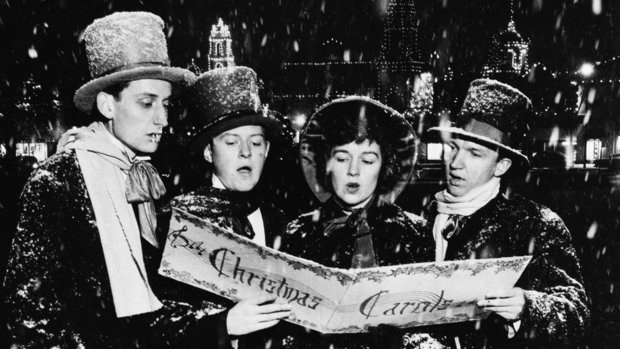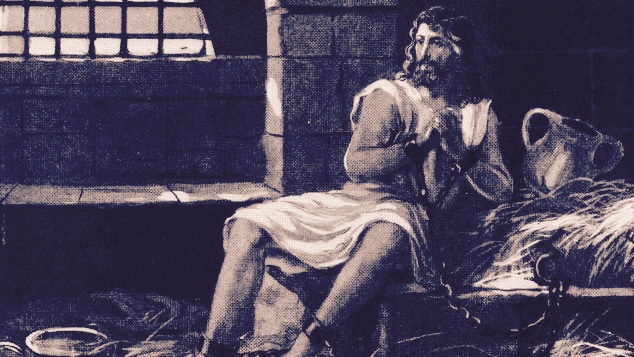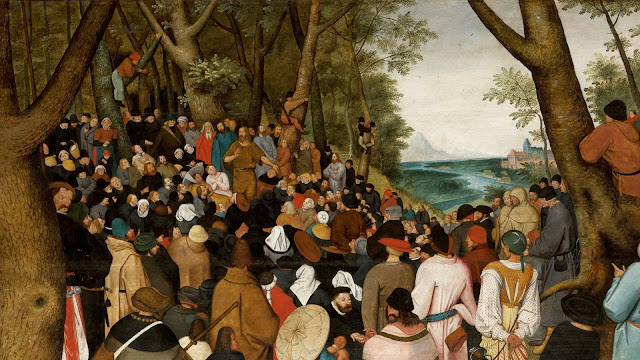The Nativity of the Lord - Christmas
It was Christmas Eve in Nashville, 1956. Judy Charest was just 3 months
old. Her father had jumped into
the shower, and by the time he stepped back out again his wife and baby girl
were gone. His wife suffered from
depression, and she had driven their little daughter to the Shelby Street
Bridge. With Judy in her arms, she
jumped 90 feet down into the icy river below.
Passersby soon noticed a woman floating in the cold water,
and they heard her screaming, “My baby!
Somebody save my baby!” In
the crowd were two men—Jack and Harold—who immediately ran down to the water’s
edge. Jack dove in and swam first
for the baby. He brought Judy back
to shore and handed her off to Harold before diving in the frigid water again
to swim for her mother. Harold
grasped the little girl tight in his arms and immediately began to run up the
riverbank. He’d only gone two or
three steps when—to his great delight—he heard the girl give a little
grunt. “It’s too good to be true,”
he thought to himself. “She’s
still alive. It’s a miracle!”
Incredibly, both Judy and her mother survived the ordeal. Actually, because of it, Judy’s mom got
the diagnosis and treatment she needed and went on to live a long, full, and
otherwise wonderful life.
Judy knew nothing about the story of her first Christmas
until she was 21 years old. And
when she heard the tale, she suddenly understood why her father held her so
very, very tight every year on Christmas.
It was only last year, when Judy was 59, that she met Harold: the man
whose strong arms had carried her up the riverbank that Christmas Eve. When they met, they hugged—tightly, and
for a long time. Just a couple of
weeks ago, when they met up again, Judy told Harold that being in his arms—the
arms that once saved her—felt so very familiar.
No doubt you’re thinking, “That’s quite a story, Fr. Joe…but
it’s not exactly your typical ‘Christmas story.’ There are no elves or reindeer. Nobody exchanges any gifts. While there are a mother and child involved, there’s no
manger, no magi.” And yet, when Ifirst heard Judy and Harold’s story a few days ago, I immediately thought,
“That’s the truest Christmas story I’ve heard in a long time.”
Why? Because
what Harold and Jack did for Judy on her first Christmas is precisely what the
Son of God did for you and me the very first Christmas: throwing all caution to
the wind, thinking nothing of himself, concerned only with the dangers we
faced, he jumped down to earth from heaven to rescue us.
To help us understand this, let’s consider Christmas music
for a minute. There is more
Christmas music than any other kind. It’s in every language, every style, coming out of
every culture. From Bach to
Beyoncé, everybody writes and sings songs for Christmas. As I heard on the radio the other day,
there are a surprising number of our modern Christmas favorites that have been
written by musicians who aren’t even Christian!
Listening to so much of this music the last few weeks, I’ve
realized that pretty much all Christmas songs—with rare exceptions—speak about
deliveries.
In contemporary Christmas songs, the deliveries are of the
sort that come wrapped in shiny paper and bows: deliveries eagerly awaited this
very night from a big man in a red suit (or maybe deliveries awaited the last
few days from somebody driving a big brown truck). Contemporary Christmas music sings a lot about presents. But Christmas can’t be all about the
presents, can it? We give gifts on
many other occasions, as well. Why
these deliveries?
If you turn back the clock a little to an earlier era,
you’ll find that Christmas songs speak of a different delivery: the delivery of
a little baby, who’s found lying in a manger. They are sentimental songs that tug on the heartstrings as
we hear the story of a child born into some rather difficult circumstances. But babies are born every minute of
every day—and far too many of them in less-than-ideal conditions. We don’t celebrate the delivery of
every newborn with all this fanfare.
Reach back even farther, and you’ll find some Christmas
songs that today are by-and-large forgotten. They, too, sing of deliveries. They sing of how this baby born in Bethlehem grew to
manhood, and how he delivered himself into the hands of the wicked, delivered
himself to suffering and a Cross, and did so that you and I might be delivered
from sin and death. They sing of
the God who dove headfirst into our humanity in order to save us. And only here, my friends, do we learn
of the delivery that makes any sense of all the others.
The good news the angels announced to the shepherds was the
birth of a Savior. But it means
nothing for us to call Jesus our Savior, to celebrate our Savior’s birth, if
there’s nothing from which we need to be saved. We Christians innately know this. At Baptism, we were literally pulled from the waters: raised
up by one who jumped in after us.
And I think that’s why, at Christmas, so many Christians who don’t
otherwise think themselves very religious, who don’t regularly practice their
faith, still feel the pull to come to church. Like when Harold hugged Judy 59 years later, we recognize a
very familiar embrace. Deep down, we know
we’re most truly at home when held in the arms of our Deliverer. It’s here where life is restored to
us. It’s here that we belong.
Two men saved a baby girl 60
years ago. On the first Christmas, a baby boy was born to save all men. Let us
rejoice his Most Sacred Heart—at this holy time, and throughout the year—by
living the kind of lives for which he risked everything to deliver us.
Merry Christmas!





















